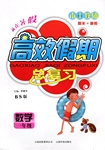题目内容
As a computer exhibition Bill gates reportedly compared the computer industry with the auto industry and stated: “If GM had kept up with technology like computer industry has, we would all be driving twenty-five dollar cars that got 1000 miles to the gallon.”
In response to Bill’s comments, General Motors announced a news release stating: if GM had developed technology like Microsoft, we would be driving cars with the following characteristics:
1. For no reason your car would crash twice a day.
2. Every time they repaired the lines on the road you would have to buy a new car.
3. Sometimes your car would die on the free way for no reason and you would just accept this, restart and drive on.
4. Only one person at a time could use the car, unless you bought “Car95” or Car NT”. But then you would have to buy more seats.
5. If you try to get your car to a mechanic, you’d make a long distance call, be put on hold for three or four hours, when you finally got the mechanic, you’d be told how to fix it yourself, and mechanic would hang up before you even tried his or her suggestions.
6. People would get excited about the “ new” features in Microsoft cars, forgetting completely they had been available in other cars for many years.
7. The airbag system would say: “Are you sure?” before going off.
8. Every time GM introduced a new model car, buyers would have to learn how to drive all over again because none of the controls would operate in the same manner as the old car.
9. Microsoft cars would have a special radio/cassette player which would only be able to listen to Microsoft FM, and play Microsoft Cassettes.
10. If you couldn’t afford to buy a new car, then you could just borrow your friends and then copy it.
11. You’d press the “start” button to shut off the engine.
46. The purpose of writing this article is ______.
A. to state the advantages of Microsoft in making cars
B to inform that Microsoft will make cars in the future.
C. To compare cars made by GM with those made by Microsoft
D. To make fun of the disadvantages of Microsoft’s products
47. It can be inferred from the passage that the airbag system of the new car _____.
A. would be safer than the old one
B. would become useless in case of an accident
C. would not surprise the driver by going off suddenly
D. would remind the driver of the danger ahead of time
48 What does the writer really mean by saying “You’d press the “start” button to shut off the engine”?
A. The design of Microsoft is very funny and strange.
B. It is better to control the engine like a computer.
C. The engine control system requires to be improved.
D. It is impossible to shut off the engine by pressing the “start” button.
49. The best title of this passage would be ______.
A. Characteristics of the New Cars B. GM Should Learn from Microsoft
C. If Microsoft Built Cars D. New Cars to be Made in the future

 暑假作业海燕出版社系列答案
暑假作业海燕出版社系列答案 本土教辅赢在暑假高效假期总复习云南科技出版社系列答案
本土教辅赢在暑假高效假期总复习云南科技出版社系列答案 暑假作业北京艺术与科学电子出版社系列答案
暑假作业北京艺术与科学电子出版社系列答案
We all know something about Thomas Edison. He was a great American 21 .He was in school for only a short time. 22 , he had to leave the school and 23 himself at home and learned a lot. When Edison grew up, he had his own lab. He worked hard and hardly 24 to have a rest.
One day a friend of his brought a young man into his lab. He 25 the young man to Edison. He said the young man had studied in a famous university in Germany and had a lot of 26 of physics and maths. Edison was glad to work with a man like him and 27 him as a helper. A few weeks later, the young 28 about Edison’s past. He began to look down on him. Edison 29 about it, but he said 30 .
Once the young man came into the lab while Edison 31 an important experiment. He stood near the table 32 he didn’t help him. Edison stopped 33 out a bottle and said, “Go to calculate (计算)its volume(容积)and tell me the 34 in two hours.”
At first the young man thought it easy to do it. Soon he 35 it difficult. Two hours later Edison went into his office and saw a lot of paper and books on his desk. Of course he couldn’t compute the volume in the time 36 .
“Why not pour some 37 into the bottle?” said Edison. “Then you’ll 38 calculate its volume!” Having heard this, the young man’s 39 turned red, and he knew Edison was really 40 than him!
| 【小题1】 |
|
| 【小题2】 |
|
| 【小题3】 |
|
| 【小题4】 |
|
| 【小题5】 |
|
| 【小题6】 |
|
| 【小题7】 |
|
| 【小题8】 |
|
| 【小题9】 |
|
| 【小题10】 |
|
| 【小题11】 |
|
| 【小题12】 |
|
| 【小题13】 |
|
| 【小题14】 |
|
| 【小题15】 |
|
| 【小题16】 |
|
| 【小题17】 |
|
| 【小题18】 |
|
| 【小题19】 |
|
| 【小题20】 |
|